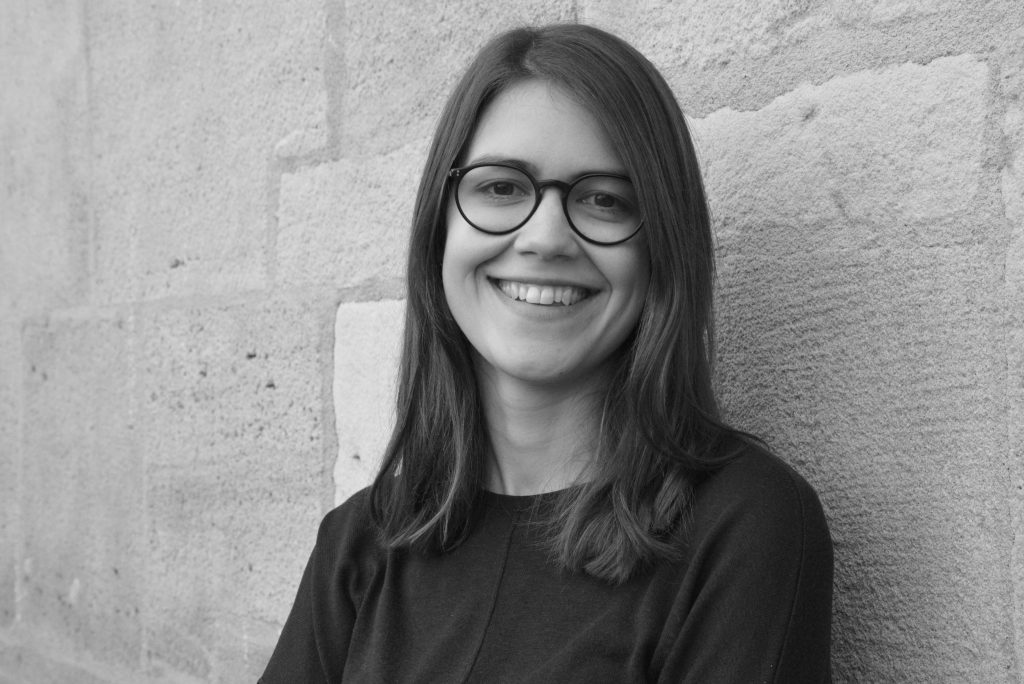
contact
Eberhard Karls Universität Tübingen
Institut für Erziehungswissenschaft |Abteilung Sozialpädagogik |
GRK Doing Transitions
Münzgasse 22
72070 Tübingen
phone: 07071-2976732
Victoria Heuschele was a research assistant at the Institute of Educational Science at the Eberhard Karls University of Tübingen from 01/2020 to 08/2023 as a fellow of the 2nd cohort of the Research Training Group Doing Transitions. Prior to this, she studied for a Bachelor’s degree in Social Work at Esslingen University of Applied Sciences, followed by a Master’s degree in Research and Development in Social Pedagogy/Social Work in Tübingen. Parallel to her two phases of study, she was employed as an honorary employee at the Job Training Center Esslingen (BAZ), where she worked with the long-term unemployed (MOVE project), and at the welfare organization Wohlfahrtswerk für Baden-Württemberg, where she supervised and supported volunteers. For many years, she was a volunteer in the Protestant youth work of the Evangelisches Jugendwerk Württemberg. Since 11/2023, Victoria Heuschele has been employed as a social worker in the project “HoMe – Hilfen für ordnungsrechtlich untergebrachte Menschen” at AWO Reutlingen.
Research Project
Based on her experiences as a research student as part of the Research Training Group ‘Doing Transitions’ and her voluntary work as a probation officer, the doctoral project was developed. Dealing with the processing of imprisonment is relevant for the consideration of coping with institutional transitions. How the respective transitions both into and out of prison are experienced is closely linked to everyday life and the experiences made in prison, says the starting point of the project. Thus, the entry and exit in case of imprisonment cannot be viewed in isolation from the specific institutional settings in and from which they take place. Based on these initial considerations, the reconstructive study investigates women’s experiences of deprivation of liberty in the context of imprisonment, taking into account their biographical contexts. The overarching research question aims to understand how the experience of imprisonment is retrospectively interpreted, processed and evaluated in the light of the biographical experiences of women with prison experience.
Biography serves as a central theoretical point of reference as a framework concept that focuses on the individual life stories of women who have committed crimes. By utilizing narrative methods of data collection and analysis, narrative self-representations of women with prison experience are examined in order to shed light on the interactions between their biographical experiences and their time in prison. The results reveal complex dynamics in which institutional frameworks and individual life courses are interwoven. The experience of imprisonment is not examined in isolation as a biographical crisis event, but is only placed in the context of the women’s entire biographies in order to contextualize its meaning and reveal its significance for the biographers. The findings of this study thus not only contribute to an understanding of the experiences of women with prison experience and their life situations in the context of the prison system, but also offer insights into the significance of biographical experiences for the interpretation, evaluation and management of interventions in biographies that at first glance appear to be particularly painful. The results of the empirical study can help to better align prison policy and practice, and in particular professionals in social services who come into contact with women with criminal backgrounds and prison experience. The doctoral project focuses on biographical research in educational science in the context of gender, deviance and the penal system and contributes to the establishment of a research topic that has so far – if at all – been the subject of a criminologically dominated debate.
